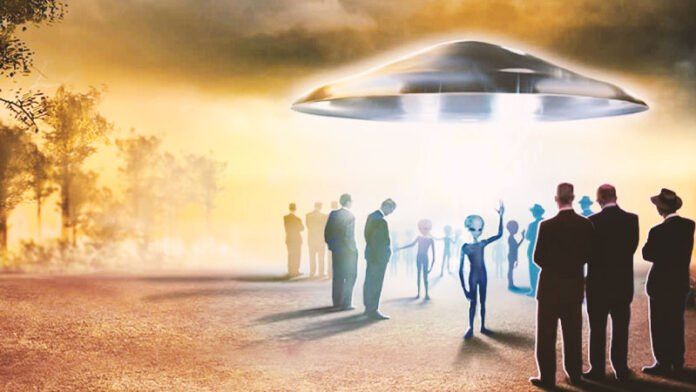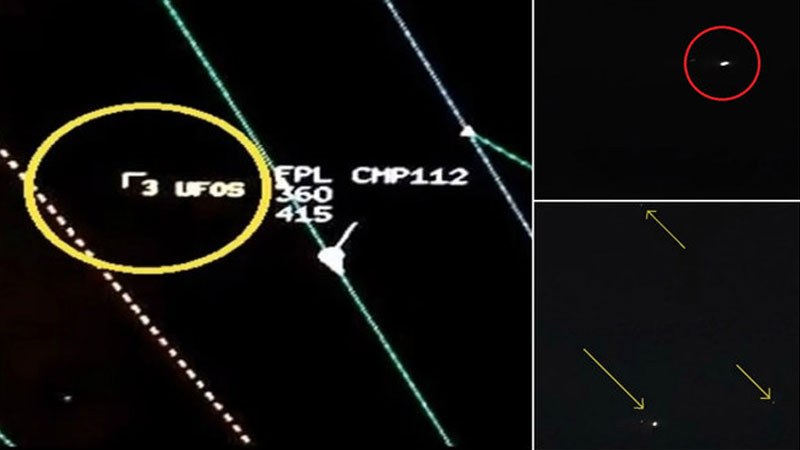
Are the aliens out there somewhere else in the Universe?
And if they are, can we find them or can they be so different from us that “finding them” would be impossible in any meaningful sense?
Five experts from various scientific fields have been asked about the existence of extraterrestrial life and here are their detailed answers.
Jonti Horner – Astrobiologist
“I think this has to be a definite yes. But I think the real question is, are the aliens close enough that we can discover them?
The space is incredibly large. In recent decades, we have learned that almost every star in the cosmos has planets. It is estimated that our galaxy, the Milky Way, has up to 400 billion stars. If each of them had five planets, we would have two trillion planets in our galaxy alone. And we know that there are more galaxies in the cosmos than planets in the Milky Way.
In other words, there are a lot of real estate out there. And with so much variety, I find it impossible to believe that Earth is the only planet that has life, including intelligent and technologically advanced life.
But will we ever find this extraterrestrial life? That’s a tough question. Imagine that one in a billion stars hosts a planet that can develop technologically advanced life, which is able to expose its existence to the cosmos.
Well, that would give us 400 stars in our galaxy with technologically advanced life. But our galaxy is vast, it’s 100, 000 light-years away from one side to the other. This is so big that if we average, these stars would be separated by about 10,000 light-years away from each other. It’s too far to hear alien signals, at least for the moment, unless they’re much more powerful than anything we can send!
So while I believe there is alien life, I think finding evidence of this will be incredibly difficult.”
Steven Tingay – Astrophysicist
“Yes, but that’s a bold statement. So let’s be clear about what we’re talking about.
I consider the term ‘alien’ a reference to all life forms, as we understand it on Earth, residing in places other than Earth. That said, there is currently no detailed consensus on the definition of ‘life’. It’s a very complex concept. But if we discovered something like bacteria somewhere other than Earth, I would classify it as alien life.
The Universe contains hundreds of billions of galaxies, each of which can be made up to billions and billions of stars. Most of these stars have at least one planet each. These planetary systems form from a rich mix of elements, including all elements considered essential to ‘life’.
Therefore, it is hard to believe that the particular mix of conditions that resulted in ‘life’ occurred only on Earth, and not in the trillions of other planets in the Universe.
But it remains to be seen whether this life is like a bacterium or whether it is an exciting ‘technologically advanced civilization’ with which we can communicate.
A significant effort is underway to search for alien civilizations that may be using technologies similar to ours, such as powerful radio telescopes sending communications at radio wavelengths between distant planetary systems.
And then, of course, it is possible that our definition of ‘life’ is quite narrow and that aliens, wherever they are, can play with a completely different set of rules.”
Helen Maynard-Casely – Planetary Scientist
“I am of the opinion that it is only a matter of time before we find something that is resemded to biology somewhere other than Earth. This is because we are increasingly finding several potential pockets in our solar system that can be hospitable to life as we know it.
For example, consider the ice-under-ice oceans of Europa and Ganymede, two of Jupiter’s great moons: these are places where the temperature is perfect, there is access to water and minerals as well. Then again, this is seeing things very similar to the reality of The Earth and of course alien life could also be very different from ours.
That’s why I’m really excited about the additional exploration of Titan, one of Saturn’s moons. Titan has a whole range of interesting molecules on its surface as well as active weather systems to transport them, that too, all within our solar system. And we know that there are other solar systems with planets in our galaxy.
Considering all this, it really seems increasingly inevitable that we find a niche for some active biology somewhere. Can you say hello to us? Well, that’s a different matter.”
Rebecca Allen – Space Technology Specialist
“Yes, but they probably don’t look like us.
It is estimated that there are more than 100 billion planets in our galaxy, with about six billion potentially earth-like. Therefore, the probability that there is life elsewhere is almost confirmed.
When we hear the word ‘alien’, however, the image of a humanoide life form usually comes to mind. But even on Earth, the most prevalent life form is much older, smaller and more resilient.
I’m talking about microorganisms, of course. These organisms challenge science by existing where life does not exist, as in the mud around volcanic vents. I bet there’s alien life in the form of these extremophiles.
In fact, NASA has just sent a team of small tardigrade astronauts to the International Space Station so that astronauts can study how they act in this extreme environment. With key ingredients for life being discovered in our Solar System, it seems likely that Earth’s toughest life forms are scattered throughout the galaxy.
But what about the more advanced life? The reality is that space is vast. And with the Kepler mission, we learn that it’s hard to find other worlds, let’s more identify one that besmeded the Earth. Add to the fact that it took billions of years for advanced life to thrive on Earth, and there’s a slight chance we’ll find a similar species of alien.
But hope remains and scientists continue to use advanced radio telescopes to search the skies for new forms of radio communication.”
Martin Van-Kranendonk – Astrobiologist
“A simple answer to that question is no.
If we use purely empirical data and assume that the question refers to any kind of life outside the Earth that is not related to human activity, then the answer, as far as we know, should be no.
But, of course, our knowledge related to this issue is finite; we do not investigate every corner of the Universe for signs of life and do not even know what life can constitute in another chemical system, since there is no consensual definition of carbon-based life even here on Earth.
So maybe the broader answer is we don’t know. In fact, we may never be able to definitively answer that question. But of course there’s a lot of work being done in the effort to figure that out.
Maybe one day we can find out if we have nearby interplanetary neighbors, or if we’re actually alone. Or maybe we never will.”



















